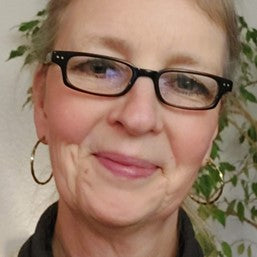Andrea Brackmann (Germany). On "Productive Restlessness."

Productive Restlessness
The highly and profoundly gifted usually have a strong inner drive to pursue
their tasks and aims. Pablo Picasso, Marie Curie, Albert Einstein, Frida Kahlo,
Charles Darwin, Hannah Arendt: They were active and productive for their
whole life up until their last breath – also when they were not successful or even
oppressed. Where does this inexhaustible drive come from? In my experience
there a three main sources:
Extremely active brains need a focus: The highly gifted think a lot, have
intense emotions and have an increased perception of many stimuli. “There is a
hustle and bustle inside of me that I often think I´m losing my little mind,” wrote
natural scientist Alexander von Humboldt. The highly gifted need to focus on
one area to bundle their plentiful thoughts and energies. Already as children,
many of them discover that they find peace and relief in learning to play an
instrument, play chess, or read books – the more challenging, the better.
The mathematician and computer pioneer Ada Lovelace said, “Nothing but a
strict intensive application of scientific studies keeps my overflowing mind from
going crazy.” Long intensive work on one topic is, in turn, an essential
prerequisite for outstanding achievements.
Existential questions: The highly gifted show greater awareness of problems
and complexity of the world, and also of risks and shortness of life. They are
seeking answers to profound questions; they are searching for meaning and
purpose in life. They hear the clock ticking, sometimes even from youth on.
They want to seize every day, make a difference and leave traces after they are
gone. All this makes the highly gifted feel restless, nervous, sometimes anxious
and sad – and forces them to be productive. “A man who dares to waste one
hour of time has not discovered the value of life,” said Charles Darwin.
However, some of the highly gifted put themselves under too much pressure.
They need to take care of the childlike and playful parts of their personality to
find a good balance.
Aiming for an ideal state: Many highly gifted feel a strong need to put
things in order. An unsolved scientific problem, a missing link in a story,
illogical or unfair behaviour of people – it feels like a constant itching, which
they must get rid of. They have a clear image of the ideal state in their mind
and need it to become real, no matter what. Greta Thunberg, for example, was so shocked when she read about climate change and its effects that she became severely depressed only by the age of nine. Finally, she had to take action.
Focusing on one important issue helped her overcome her depression and
unfold her powerful personality. Albert Einstein put the theory of “productive restlessness” in a nutshell: “the ingenious person tries to create a simplified and clear picture as a substitute for its swirling personal experience. In this picture, he shifts the focus of his emotional life to seek calm and stability. The painter, the poet, the philosopher, and the natural scientist do this, each in his own way.”
Andrea Brackmann, Dipl. Psych, is a licensed clinical psychologist and cognitive-behavioral therapist who has worked with gifted children and adults for two decades. She published some of the most known books in the German-speaking region about the emotional and social needs of the gifted and their multifaceted inner world, most recently Extreme begabt –Die Persönlichkeitsstruktur von Höchstbegabten und Genies.

